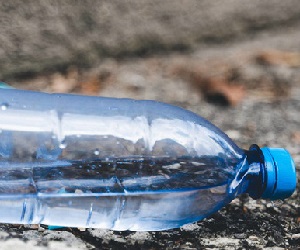 An international team of scientists has discovered a simple, low-energy way to break down so-called “everlasting chemicals,” perfluoroalkyl and polyfluoroalkyl substances (PFAS) of anthropogenic origin, which are widely dispersed in water sources around the world. and have been linked to multiple human health problems, including everything from learning disabilities to cancer, infertility, increased cholesterol and immune system problems.
An international team of scientists has discovered a simple, low-energy way to break down so-called “everlasting chemicals,” perfluoroalkyl and polyfluoroalkyl substances (PFAS) of anthropogenic origin, which are widely dispersed in water sources around the world. and have been linked to multiple human health problems, including everything from learning disabilities to cancer, infertility, increased cholesterol and immune system problems.
PFAS molecules possess carbon-fluorine bonds so strong that they were considered virtually impossible to break. However, in their study published on August 18 in the journal Science, the researchers claim to have developed a low-energy process that degrades these chemicals at mild temperatures, using cheap reagents and leaving only harmless molecules containing carbon and fluoride ions.
“The fundamental understanding of how these materials degrade is probably the most important thing to come out of this study,” said William Dichtel, co-author of the research and professor of chemistry at Northwestern University (Illinois, United States).
He and his colleagues tested their low-energy method on PFCA molecules of different chain lengths and managed to break down 10 of them. The trick was to target a group of charged oxygen atoms at the very end of the PFCA molecules.
“The action triggered all of these reactions and started knocking fluorine atoms out of the compounds to form fluoride, which is the safest form of fluorine,” Dichtel explained. “Although carbon-fluorine bonds are extremely strong, that charged headgroup is the Achilles’ heel.”
The team then used computer simulations to test the onslaught of complex chemical reactions and confirm that the byproducts were relatively harmless.
According to Shira Joudan, a researcher in environmental chemistry at the University of York, and her colleague Rylan Lundgren, from the University of Alberta, the study “provides insight into how these apparently robust compounds can undergo near-complete decomposition under unexpectedly mild conditions.” ”. These findings could be “combined with the efficient capture of PFAS from contaminated environmental sites to provide a potential solution to the eternal chemical problem,” they conclude.
However, there are more than 12,000 different PFAS chemicals recognized to date, so more research is still needed to fully understand the reactivity of these molecules and determine whether they can all be degraded using similar approaches.
(Taken from RT in Spanish)